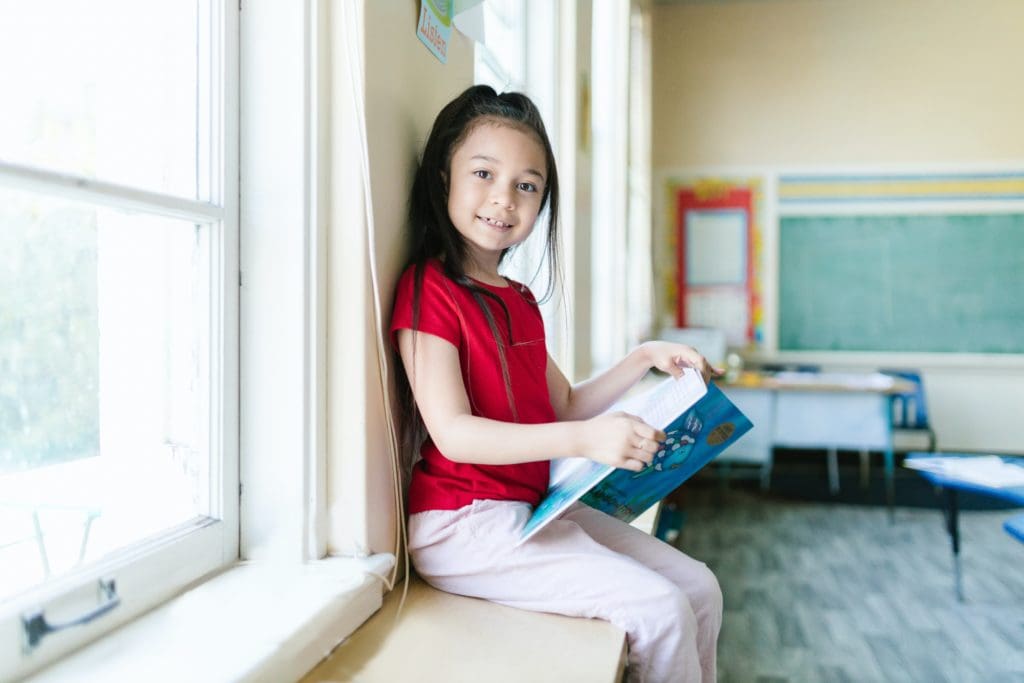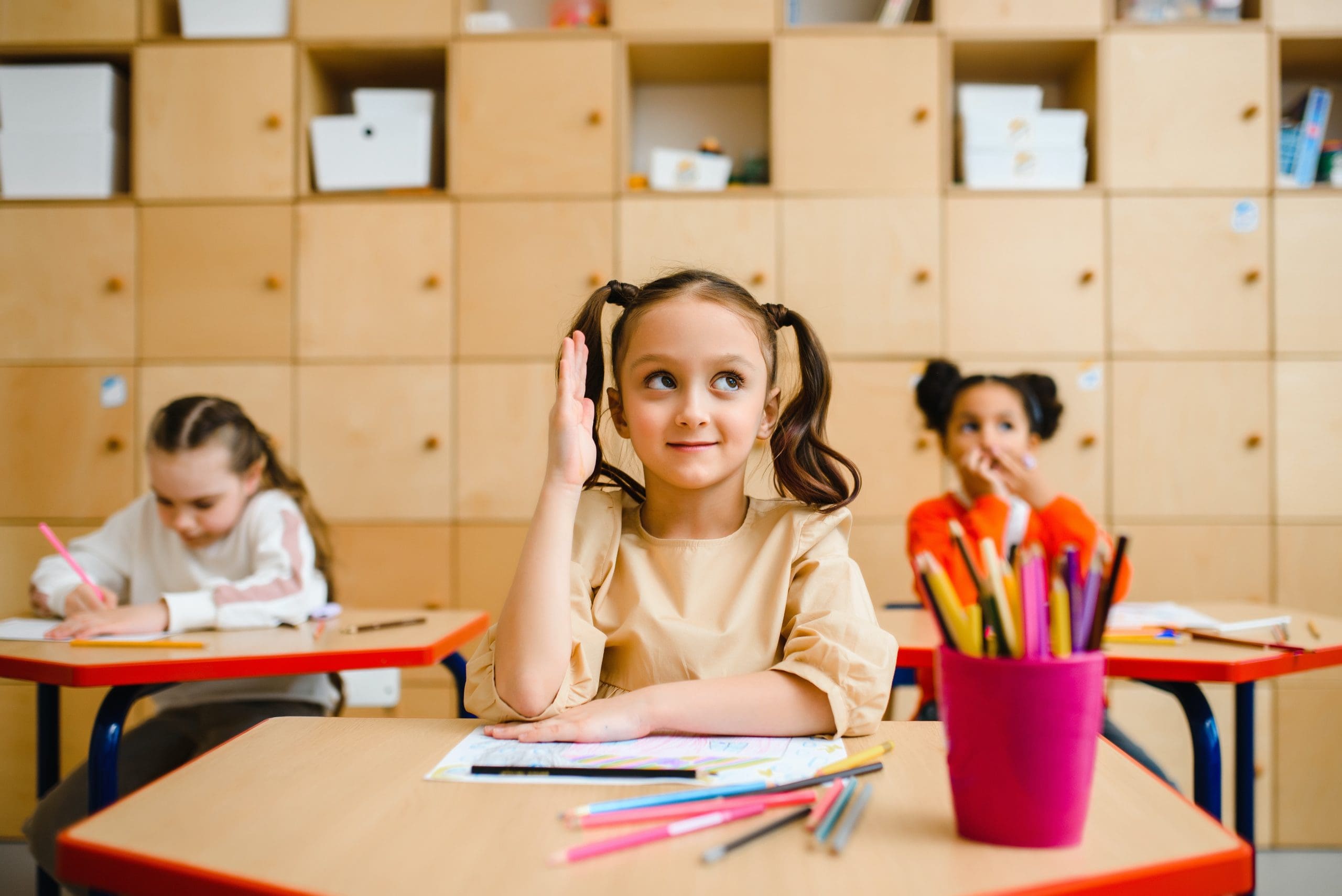As families across the country grapple with a return to virtual learning for an unknown period, we must be aware of the academic and social impacts that ongoing learning disruptions and continued school closures have on youth. As a thought leader and advocate for STEM education, Jennifer Flanagan, mother of two and CEO of Actua—Canada’s largest science, technology, engineering and mathematics (STEM) organization—sat down with us to discuss the short-term and long-term impacts of ongoing school disruptions and explain the urgent need for all Canadian students’ return to the classroom ASAP. —Noa Nichol

Hi Jennifer! Please tell us a bit about yourself to start.
I have been an advocate for inclusive science, technology, engineering, and mathematics (STEM) education and skills development in Canada for over 25 years. As founder and CEO of Actua, Canada’s largest STEM outreach organization, I work with educators, policymakers, community leaders, and industry to unlock the infinite potential of youth through transformative learning experiences while radically and relentlessly removing barriers to STEM education and careers.
As families across the country grapple with a return to virtual learning for an unknown period, what can you tell us about the academic and social impacts that ongoing learning disruptions and continued school closures have on youth?
Numerous studies have now highlighted the severe negative impacts of the pandemic on youth mental health and well-being. Children’s hospitals across the country are reporting an alarming rise in mental-health-related illnesses, while educators, parents, and youth are expressing concern about mounting learning gaps. The evidence is clear—our kids have fallen behind academically, socially, and emotionally.
As a thought leader and advocate for STEM education and a mom of two, can you further explain the urgent need for all Canadian students’ return to the classroom ASAP?
What we are hearing from teachers and parents who are on the frontlines day in and day out, and which is now backed by research, is that school disruptions are having a profound impact on youth. These impacts include learning loss in critical areas like literacy and numeracy, decreased confidence and motivation levels, and, perhaps most damaging of all, is the erosion of a young person’s love of learning.
In what ways are students falling behind in both literacy and numeracy skills?
Ongoing school disruptions are hindering learning in these crucial areas for many reasons. Our current curriculum is designed for an in-classroom experience, and teachers have not been given the training, support, and resources to effectively engage youth and deliver this curriculum online. We also know that in many homes, especially low-income households, many students lack access to the basic technologies and the quiet and safe environments required for them to participate in online learning. For reasons like these, students are finding it challenging to stay engaged and are falling behind academically.
For many kids, screen time is up—way up. What are the negative side effects of this?
Increased screen time is unavoidable at this time, and that’s OK. However, the more time youth spend online, the more chances they have of falling victim to online threats and security risks. As parents, we must talk to our kids about what they are doing online, who they are talking to, and any challenges they face. It’s also essential to have regular discussions about privacy, good online behaviour, and what to do if they encounter a problem. And, while I struggle to say this as a parent who relies on my kids’ screen time to get my own work done, it’s important we create and encourage kids to get up and away from screens—whether that’s to go outside or call a friend.

How about confidence? Are youth losing confidence in themselves with the lack of activities, sports and real-time feedback from teachers?
Without a doubt. Within the education environment, we are seeing youth lose confidence in themselves with the lack of social activities, sports, and real-time feedback from teachers. This is problematic because we know when students lack the confidence levels, particularly girls—who are more likely to struggle generally with confidence issues in areas like math and science—they are less likely to see themselves as successful leaders in the future. Unfortunately, online learning makes it difficult for teachers to create the inclusive and engaging environments we know are essential for building a young person’s confidence and where we know they can thrive.
In what ways may students be struggling with an online learning environment?
The online learning environment can feel unnatural and monotonous for many young people, dramatically reducing their motivation and energy levels across all areas of life. We also know many teachers find it challenging to accommodate varying learning styles and meet the unique needs of their students online. Even more concerning is that some students lack access to the essential tools required to fully participate in an online learning environment, such as access to a computer or the internet.
Are all/many of these negative impacts worse for youth facing socio-economic barriers including a lack of access to technology and online learning? How so?
Absolutely. We must remember that access to technology is a privilege. Many young people, especially those in rural, remote and Indigenous communities across Canada still struggle to access a high-quality and affordable internet connection and basic digital technologies, like a computer, which are now critical to quality education and social inclusion.
With early childhood development in mind, can you further explain the possible long-term negative impacts here, perhaps even into adulthood?
While it may be a while before we fully understand the long-term impacts of the pandemic on youth, I am most concerned that ongoing school disruptions have seriously impeded and eroded a core love of learning—which is a key indicator of future success. I’m also worried that the pandemic has exacerbated educational disparities in this country and has created an even greater achievement gap which will be difficult to close and have lasting impacts on the economic well-being of youth and our economy as a whole.
Speaking of adults, as a mom, are there impacts on parents to consider here?
The past two years have been incredibly difficult for everyone, but they’ve been particularly difficult for working parents—and even more so mothers who continue to take on most household duties. I know many parents, including myself, have felt completely overwhelmed trying to manage the already tricky balancing act between parenting and work during school closures. Some parents have chosen to take parental leave, quit their job altogether, forgo a promotion, or have fallen behind at work the same way kids have fallen behind at school. But, parents must know they are not alone. The frustration they feel and the mental health issues and personality changes they see in their children are common. We are all balancing a lot, but we will get through this!
All of this said, what is some advice you can give to students and parents, to address the most pervasive issues of online learning?
We started the pandemic promoting the message that “the kids will be OK” and that simply isn’t the case anymore. In response to a growing, collective concern among parents and teachers, here are key tips to address the most pervasive issues:
- Reinstil a sense of optimism by reminding youth how much we have accomplished and achieved over the past two years thanks to science, technology, and innovation.
- Modify your child’s online learning schedule to make it work for their unique learning styles and needs, as well as your own needs! Give your kids some options and have a conversation about what would help increase their level of engagement (snacks, breaks, colouring pages, calm music, etc.).
- Focus on achieving just one thing each day—big or small. Celebrate and name the wins to boost confidence.
For policymakers, what could some alternative plans include that perhaps wouldn’t cause such disruption and damage?
While I share the safety concerns many policymakers, educators and parents have toward in-school learning, I firmly believe what’s best for our children right now is to get them back in the classroom. I am relieved to hear that Ontario students will be returning next week and that ongoing improvements are being made to classroom safety.

Be the first to comment